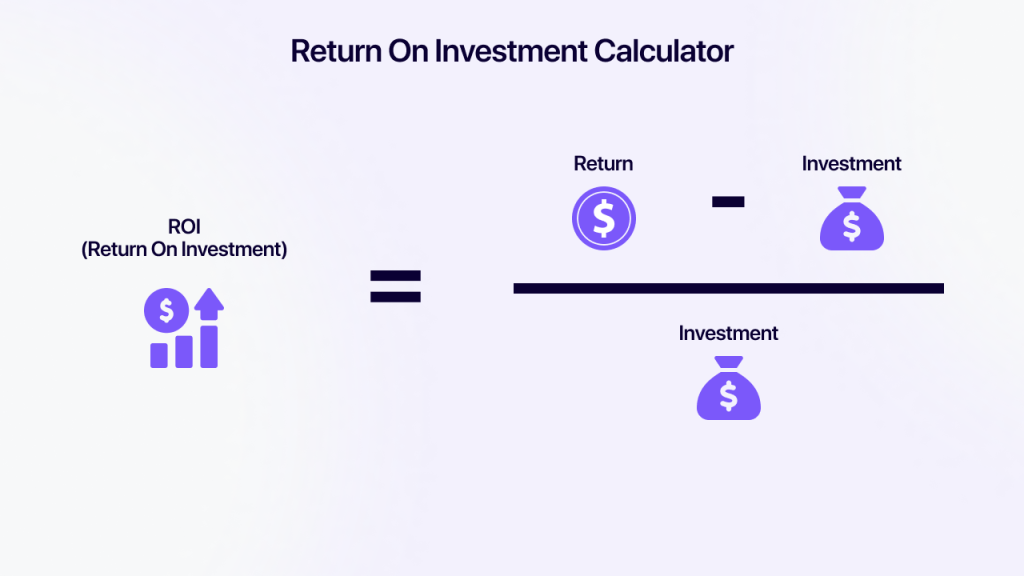Affiliate Marketing vs. Influencer Marketing: Which is Best for Your Brand?
Affiliate Marketing vs. Influencer Marketing: Which is Best for Your Brand?
- Introduction
- Understanding Affiliate Marketing in Ecommerce
- Exploring Influencer Marketing for Ecommerce Brands
- Comparing Objectives: Affiliate vs. Influencer Marketing
- Cost-Effectiveness and ROI
- Building Trust and Credibility
- The Impact on Traffic and Sales
- Long-term vs. Short-term Gains
- Challenges and Pitfalls
- Legal Considerations and Ethical Practices
- Integrating Affiliate and Influencer Marketing
- Conclusion
Introduction
In the dynamic arena of ecommerce, understanding the nuances of digital marketing is crucial for any brand’s growth and success. This article zeroes in on two pivotal strategies: affiliate and influencer marketing. We will provide a detailed comparison to help you decide which is the best fit for your brand.
By exploring their unique benefits and challenges, we aim to guide you through these critical digital marketing approaches, offering insights for informed strategic decisions in your ecommerce journey.
Understanding Affiliate Marketing in Ecommerce
Affiliate marketing in ecommerce is a strategy where businesses collaborate with affiliates to promote their products. The affiliates earn commissions on sales or leads generated. This model has gained popularity in the ecommerce world for its cost-effectiveness and efficiency.
Key Aspects of Ecommerce Affiliate Marketing
- Performance-Based Rewards: Affiliates are compensated based on the traffic, sales, or leads they generate, aligning their efforts directly with business outcomes.
- Strategic Partnerships: Success hinges on partnering with affiliates with an engaged audience matching the brand’s target demographic.
- Transparent Tracking Systems: Essential for monitoring affiliate performance and ensuring accurate commission distribution.
- Competitive Commissions and Support: Offering appealing commission rates and support to affiliates is critical for a program’s success and sustained affiliate motivation.

Exploring Influencer Marketing for Ecommerce Brands
Influencer marketing for ecommerce involves partnerships with influencers. A brand will use an influencer’s social media presence and audience trust to promote products. This strategy enhances brand visibility and credibility.
Key Elements of Ecommerce Influencer Marketing
- Leveraging Trust: The effectiveness of influencer marketing is rooted in the influencer’s authentic relationship with their audience, driving brand awareness and loyalty.
- Audience Alignment: Choosing influencers whose followers match the brand’s target audience is crucial for impactful promotions.
- Content Collaboration: Influencers create engaging content that organically integrates the brand, offering a relatable and compelling promotion method.
- Engagement and Brand Perception: Brands measure success by the engagement the content receives and its influence on the brand’s image rather than direct sales.
Comparing Objectives: Affiliate vs. Influencer Marketing
When evaluating affiliate and influencer marketing, it’s essential to understand the distinct objectives of each strategy and how they align with ecommerce brand goals.
Objectives of Affiliate Marketing
- Direct Sales and Performance Tracking: The primary objective is to drive sales through affiliate links. Clear performance metrics like clicks, conversions, and sales measure success.
- Cost-Effective Growth: Affiliate marketing focuses on cost-effective growth strategies, paying commissions based on actual sales, aligning with ecommerce goals of maximizing ROI.
Objectives of Influencer Marketing
- Brand Awareness and Credibility: Influencer marketing aims to enhance brand visibility and establish credibility through the influencer’s endorsement.
- Audience Engagement and Loyalty: It’s about connecting with potential customers, fostering engagement, and building long-term brand loyalty.
Both strategies, while distinct, can complement each other. Affiliate marketing offers a direct, performance-based approach to driving sales. In contrast, influencer marketing excels in building brand identity and customer relationships, both crucial for the holistic growth of an ecommerce brand.
Cost-Effectiveness and ROI
Understanding the cost-effectiveness and return on investment (ROI) of affiliate and influencer marketing is key to determining the best strategy for an ecommerce brand.
Cost-Effectiveness in Affiliate Marketing
- Performance-Based Costs: Affiliate marketing is inherently cost-effective, as expenses are directly tied to performance metrics like sales or leads. This minimizes financial risk and ensures that spending directly correlates with tangible results.
Cost-Effectiveness in Influencer Marketing
- Upfront Investment: Influencer marketing often requires an upfront investment, paying influencers for their content and reach. The costs can vary significantly based on the influencer’s popularity and the campaign’s scope.
Comparing ROI
- Measuring ROI in Affiliate Marketing: ROI is straightforward to measure, calculated based on the revenue generated from affiliate-driven sales versus the cost of commissions.
- Measuring ROI in Influencer Marketing: The ROI is less direct, often assessed through engagement rates, brand sentiment, and long-term impact on sales and customer loyalty.
While affiliate marketing offers a more direct and performance-based ROI, influencer marketing brings value in building brand equity and potential long-term customer relationships, which can be pivotal for sustained ecommerce success.

Building Trust and Credibility
Affiliate and influencer marketing contribute to the credibility and trust of an audience in several ways. Affiliate marketing primarily focuses on the product’s quality and value. This strategy also endorses products based on their merits. When coupled with transparency about the affiliate relationship, it significantly enhances credibility.
On the other hand, influencer marketing hinges on the authenticity and personal connection that influencers have with their followers. Influencers build trust by sharing genuine experiences and opinions about products. This makes their endorsements feel more like trusted recommendations than standard advertisements.
While affiliate marketing gains trust through straightforward, product-focused content, influencer marketing leverages the influencer’s personal credibility and audience rapport. When executed with integrity and transparency, both strategies are powerful in fostering trust and enhancing the reputation of an ecommerce brand.
The Impact on Traffic and Sales
In ecommerce, affiliate and influencer marketing uniquely influence website traffic and sales. Affiliate marketing, with its direct linking approach, tends to have an immediate impact on traffic and sales. By guiding potential customers straight to product pages, it facilitates quick conversions.
In contrast, influencer marketing may not directly drive sales but can significantly boost brand awareness. This indirect approach gradually increases website visits over time, contributing to a sustained uptick in sales. While affiliate marketing creates a direct path to purchase, influencer marketing cultivates brand familiarity, which translates into sales growth over time.
Long-term vs. Short-term Gains
In ecommerce, understanding the time frame and sustainability of affiliate and influencer marketing gains is crucial for strategic planning.
Affiliate Marketing: Long-term Value
- Sustained Partnerships and Consistent Sales: Affiliate marketing often leads to long-term benefits. The nature of affiliate partnerships tends to bring consistent traffic and sales over time, contributing to sustained brand growth.
- Sustainability: This strategy is sustainable as it’s performance-based, ensuring that marketing spend is directly proportional to the results achieved.
Influencer Marketing: Short-term Focus with Long-term Potential
- Immediate Impact on Brand Awareness: Influencer marketing campaigns usually offer immediate boosts in brand visibility and engagement, which can translate to short-term sales spikes.
- Potential for Long-term Relationships: Although the focus might be short-term, building long-term relationships with influencers can lead to ongoing brand promotion and customer loyalty. This adds a longer-term value to the initial investment.

Challenges and Pitfalls
While affiliate and influencer marketing can be highly effective for ecommerce brands, they also come with challenges and risks. Let’s examine the most common ones.
Challenges in Affiliate Marketing
- Quality Control: Ensuring that affiliates represent the brand appropriately can be challenging. There’s a risk of affiliates using aggressive or misleading tactics that could harm the brand’s reputation.
- Dependency on Affiliates: Over-reliance on a few affiliates can lead to vulnerability if those affiliates change their focus or platform policies evolve.
Challenges in Influencer Marketing
- Finding the Right Match: Selecting influencers who genuinely resonate with the brand and have an engaged audience is crucial but can be difficult.
- ROI Measurement: Measuring the direct impact of influencer campaigns on sales can be challenging, as their primary strength lies in brand awareness and engagement rather than immediate sales.
Mitigation Strategies
If you are experiencing affiliate and influencer marketing challenges, there are several ways to reverse those issues.
- Vetting and Continuous Monitoring: For both strategies, thoroughly vetting partners and continuously monitoring their activities are key to maintaining quality and alignment with brand values.
- Diversification: Diversifying the pool of affiliates and influencers helps mitigate the risk of over-reliance on a few key players.
- Clear Agreements and Expectations: Establishing clear agreements and expectations regarding campaign objectives and content guidelines can help maintain consistency and protect brand image.
- Leveraging Analytics: Utilizing analytics tools to track performance and gain insights can aid in making informed decisions and adjusting strategies as needed.
Addressing these challenges requires a proactive approach, ensuring that partnerships in both affiliate and influencer marketing are well-managed and aligned with the brand’s overall goals and ethics.
Legal Considerations and Ethical Practices
In affiliate and influencer marketing, compliance with legal requirements is crucial. Affiliates must disclose their commission-based relationship with brands, while influencers must indicate their sponsored content to their audience. This transparency is mandated to maintain consumer trust and adhere to advertising laws.
Ethical practices also play a significant role, involving respect for consumer privacy and ensuring honesty in marketing communications. This includes respecting data protection laws, like GDPR and CCPA, and ensuring that all marketing messages are honest and not misleading. For ecommerce brands, staying informed about legal and ethical standards is essential to sustain credible and lawful marketing campaigns.

Integrating Affiliate and Influencer Marketing
For ecommerce brands, combining affiliate and influencer marketing can significantly boost the effectiveness of their marketing strategy. Check out some tips for combining these two strategies below.
Streamlining Integration Strategies
- Influencers as Affiliates: Transform influencers into affiliates to merge the reach and authenticity of influencer marketing with the performance-driven nature of affiliate marketing.
- Coordinated Campaigns: Use influencers for brand awareness and affiliates for driving conversions, harmonizing both strategies for greater impact.
- Unified Goals: Align both strategies towards common objectives, ensuring cohesive efforts.
Achieving Balanced Impact
- Leverage Strengths of Each Strategy: Utilize influencer marketing for brand trust and awareness, and affiliate marketing for direct sales and measurable ROI.
- Target Different Audience Segments: Tailor strategies to different audience stages – influencers for initial engagement and affiliates for conversion.
- Regular Performance Review: Continuously assess and adjust the balance between both strategies for optimal results.
This integrated approach allows ecommerce brands to capitalize on both the expansive reach of influencers and the targeted, results-driven nature of affiliate marketing.
Conclusion
So, which one is best? It depends. Both affiliate and influencer marketing offer unique advantages for ecommerce brands. While affiliate marketing provides a more direct link to sales and measurable ROI, influencer marketing builds brand awareness and trust with audiences. By utilizing both strategies, ecommerce brands can create a robust marketing strategy that maximizes reach and conversions, ultimately driving success in the competitive digital marketplace.
Reach out to Adspace today to discover how we can help you harness the power of these dynamic marketing approaches for unparalleled growth and success in your ecommerce journey.
Download our free guide to learn how to measure SEO ROI through content marketing
Download Download











